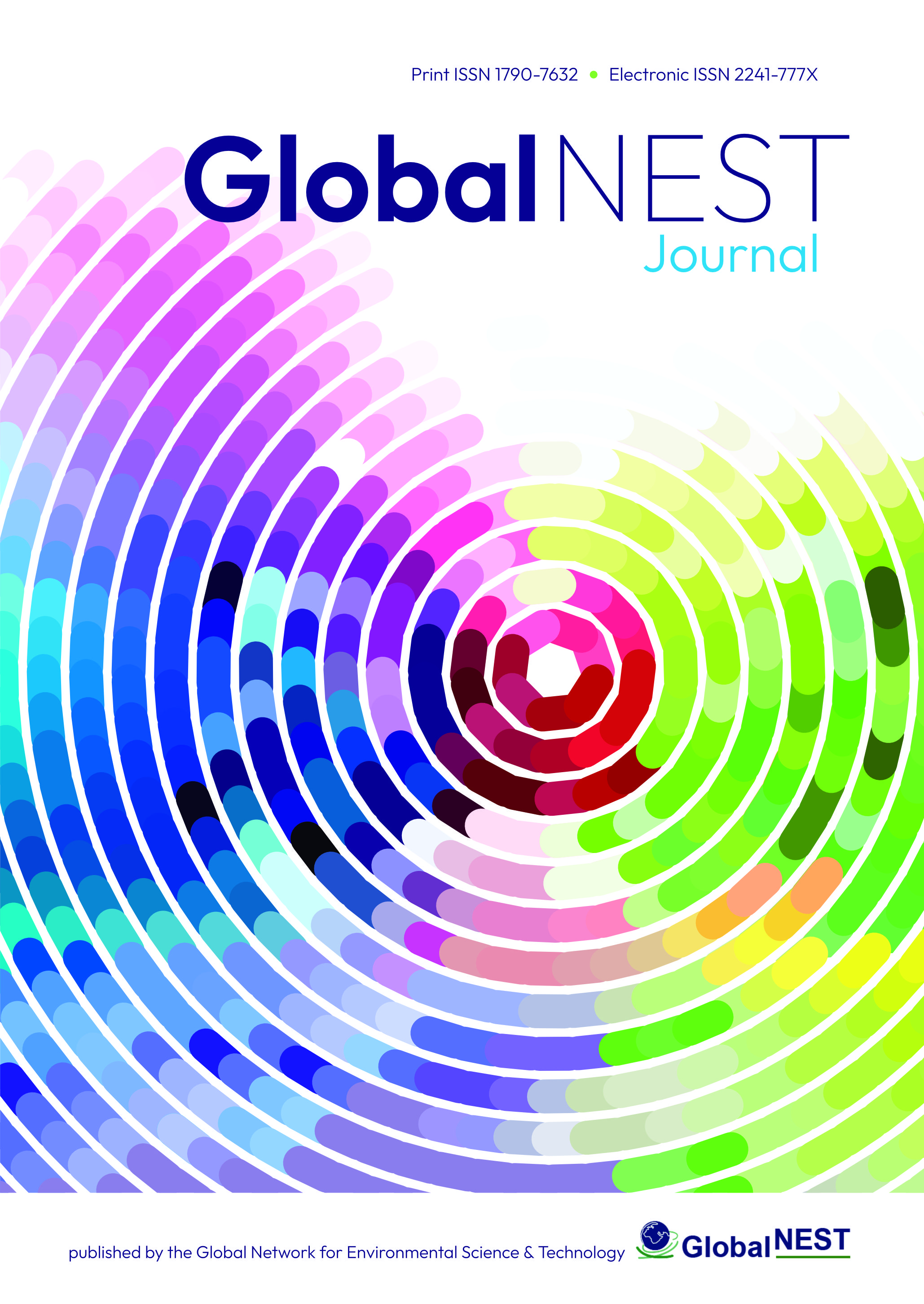Global NEST Journal

The Global NEST Journal is an open access journal that publishes original research articles, short papers and critical reviews on all aspects of Environmental Science and Technology. These comprise, but are not limited to, Pollution Control Technology, Global Environmental Change, Air Quality, Water Quality, Water and Waste Water Treatment, Solid Waste Management, Hazardous Substances and Risk Analysis, Emerging pollutants. Relevant topics incorporating the methodologies and state of the art of disciplines such as Environmental Management Policies, Ecosystems and Natural Resources Management, Hydrology and Water Resources Management, Clean Energy and Sustainability are included.
Submitted manuscripts are initially reviewed by the editor and selected after rigorous peer review by scientists in order to assess the significance, originality and appropriateness for publication.
Articles submitted to Global NEST Journal benefit from its broad scope and readership. We aim for a turnaround time of 4 weeks from submission to first decision.
Global NEST Journal is addressed to professionals in Academic, Consulting Offices, Government Agencies and Organisations, as well as others responsible for the investigations, evaluation of complicated environmental issues of global interest.
The 2024 Scopus CiteScore for the Global NEST Journal is 2.36. It is also ranked in the Q3 quartile for Environmental Science (miscellaneous).
Here's a breakdown of other key metrics:
- H-index: 41
- SJR: 0.250 (Q3)
- SNIP score: 0.48
Journal Impact Factor (JIF): The Journal Impact Factor (JIF) is not directly calculated in Scopus and is based on Web of Science data. Web of Science data. However, the Global NEST Journal does have a JIF, and the Journal Impact Factor (JIF) is 1.5-year Impact Factor is 1.1.
Scimago Journal and Country Rank (Scimago) provides information on the journal's H-index and SJR, while Researcher.Life lists the CiteScore and quartile. Web of Science Journal Info lists the JIF.
Latest articles
Study on the Selection of Recycling Channels for Authorized Remanufacturing Models under Carbon Allowance
by Cui Zishan Wang Jiuhe
Impact of alumina nanoparticles and lanthanum zirconate coating on the Performance, combustion and emission characteristics of diesel engine functioned with Terminalia cattappa seed oil
by Venkatesh Kumaragurubaran Bensam Raj Ramesh Kumar
From Regulatory Pressure to Green Innovation: A Cognitive Perspective from China's Plastic Industry
by Zhang Caihua Zhang Zhuang Zhao Kunjian Lei Xue
Assessment of the Domestic Sewage Sludge by Different Drying Methods: solar radiation and thermal energy source
by Gök Gülden Düzgün Türkay
Geospatial modeling of drought using remote sensing and GIS technique a :(case study of Babylon and surrounding area, Iraq).
by M.Kadhum Zahraa AL-Hameedawi Amjed. Hamoodi Mustafa